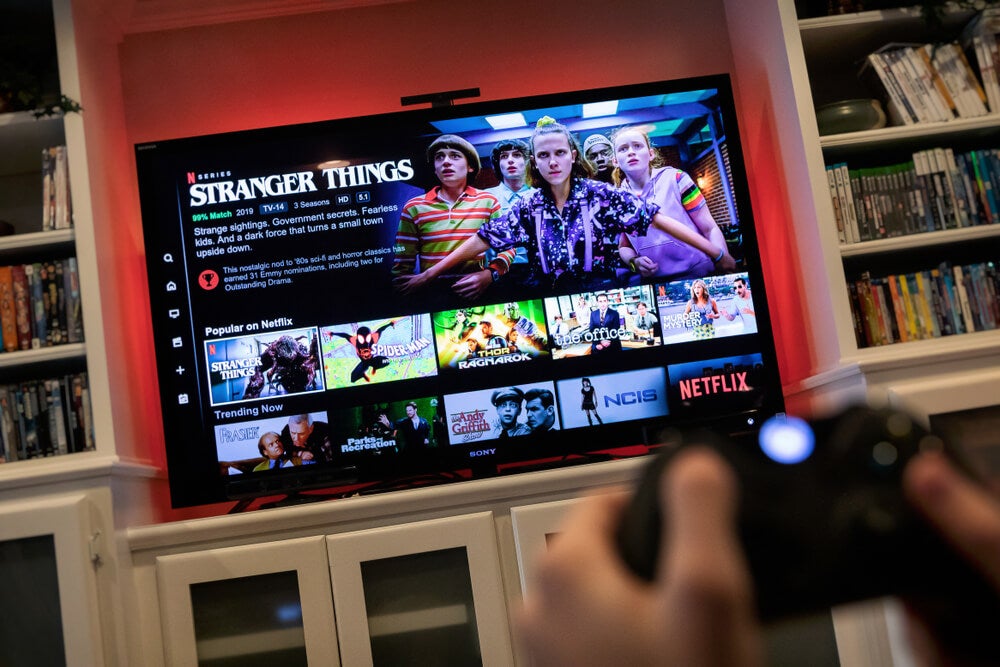The end of a television series that we have followed for several years with interest and even passion is not always easy to bear, this not only means saying goodbye to certain characters and a story, because the duel of this last point adds another interesting factor: a result that is not always to our liking.
They are increasingly common realities in our daily lives, which also hide a great psychological interest.
- Stephen King recently stated that we will rarely be completely satisfied with the end of a book or series if we are in love with one or the other.
- What’s really hard to bear is its end.
It is very difficult for people to end up with something when there is some emotional connection, therefore the feeling of loss is real as well as the frustration itself.
From the point of view of psychology, it is assumed that the world of pop culture (understood as the set of artistic and cultural manifestations that surround us) has a very direct impact on humans. Thus, the television universe undoubtedly has undisputed power.
We face a medium that we welcome in the privacy of our homes, in which the series becomes, almost as a ritual, a practice that we inevitably fall in love with.
So much so that the end of these becomes a social phenomenon, it is something that can replace, for a few days, the interest in social, political or economic events, for many the fact that this is happening is worrying, for others it is simply a reflection of a society that sees the series as part of their lives.
“I hate television. I hate her as much as I hate peanuts. But can’t I stop eating peanuts? – Orson Wells-
The phenomenon at the end of a television series and the conflicting emotions we may feel because of it are not new, an example of this is the experience of Arthur Conan Doyle.
The famous writer found success thanks to some adventures he published every week in Strand magazine. These adventures were led by a character who captivated thousands of people. It was Sherlock Holmes.
Doyle, however, never felt any particular appreciation for his upbringing, I felt the need to devote myself to other things, to write a very different kind of literature.
Then, when he decided to kill Sherlock Holmes in Reichenbach Falls, he had to deal with something unexpected: Strand readers threatened him and, on more than one occasion, feared for his life. He had no choice but to revive the tenant of Baker Street. some time later.
Sherlock Holmes readers were the first fans to experience this common double suffering today. First, say goodbye to the characters. Second, having to deal with an unexpected ending.
One of the oldest television series in history is Doctor Who. More than 50 years ago, several generations have grown up watching the adventures of the famous lord of the time. For British television, it’s little more than an institution.
The Simpsons, for example, have been living with us since 1989, and series such as CSI, Grey’s Anatomy and Supernatural line 300 episodes.
Throughout these weekly TV shows and other shows, viewers grow, mature, change, suffer losses and achievements as they watch these parallel stories unfolding behind a screen. The bond that is created with this universe is inevitable.
Today, nine years after the last episode of Lost, many people continue to create theories about its outcome, although enduring a TV series is already difficult, for some it is even harder to do so without understanding its end or agreeing with it. .
To this sequence of controversial and controversial purposes, we can add (according to widespread opinion) the recent Game of Thrones, How I Met Your Mother, Dexter, House of Cards and Breaking Bad, a great series that surprised us in its time by its great characters and scripts, but that (sometimes) has disappointed us by its conclusion.
So how do you handle the end of a TV series in such cases?Of course, it is not advisable to do with the producers what Annie Wilkes’ character did with her favorite writer in Miser.
Although we believe in an emotional connection to these TV shows, they are nothing more than an exciting show, with beginning and end.
We can suffer with other fans, with friends, colleagues and family sharing feelings and evoking, above all, the good times experienced in these series. The good thing about this television universe is that the show never ends.
When we realize it, another series will appear that we will fall in love with.

